Legislative Update 10: House Budget Released
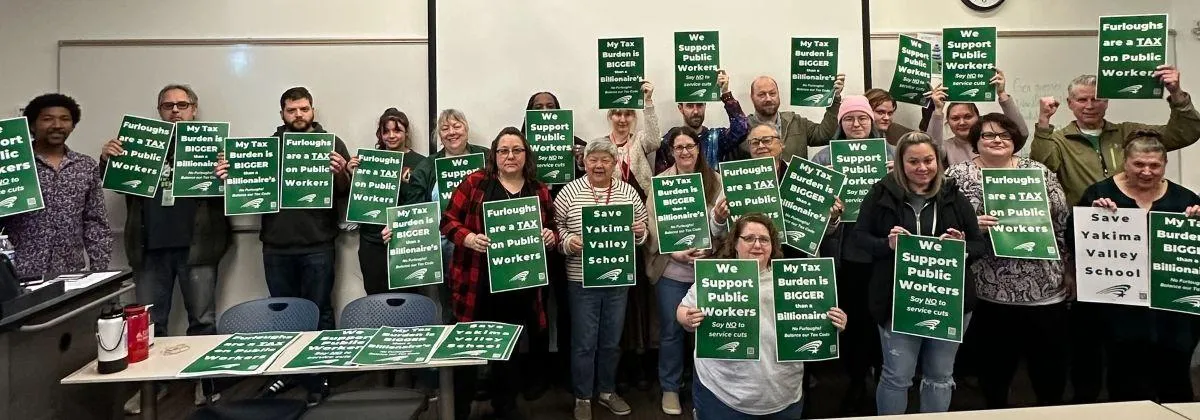
The House and Senate have released their budgets, setting the stage for the negotiations between the two chambers that will ultimately produce a final budget.
The House budget is clearly the better deal for public workers, but it's not perfect.
It would close both Yakima Valley School and Rainier School, shuttering two of our state's four residential habilitation centers and seriously diminishing services for adults with developmental disabilities.
Aside from that, the House budget does a much better job than the Senate budget in investing in existing services before spending new dollars.
House Budget
- NO furloughs for public workers or reductions in pays
- NO cuts to public workers' healthcare benefits
- Closes BOTH Rainier School and Yakima Valley School
- Closes two DOC reentry centers
- New revenue of $5.1 billion in the 25-27 biennium
Senate Budget
- Cutting public workers' healthcare benefits (SB 5793)
- Suspending our union's right to negotiate over healthcare until 2029 (SB 5792)
- Cancels our 5% raises by implementing furloughs from July 2025 to June 2026
- Closes Rainier School but not Yakima Valley School
- Closes five DOC Reentry centers
- New revenue of $6 billion in the 25-27 biennium
What We're Pushing For
First, we need to acknowledge that both the House and the Senate were clearly prepared to do what Governor Ferguson was not: raise new revenue by demanding that corporations and the super-rich begin contributing like the rest of us.
We need to rally behind the House budget and push the legislature to adopt it—but they need to take out to closures of Rainier School and Yakima Valley School and DOC reentry centers.
All we're asking for is to not let corporations and wealthy Washingtonians benefit from furloughing our members and increasing our healthcare costs.
Scroll down for ways to take action.
What's at Stake on Healthcare
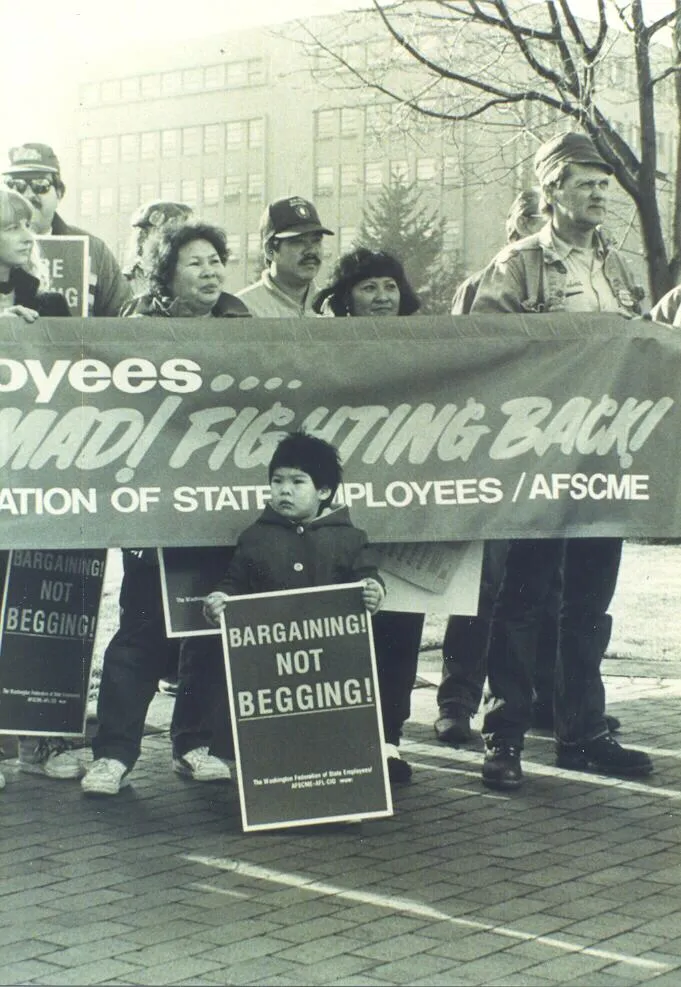
Currently, WFSE members pay 15 percent of healthcare costs and the state pays 85 percent. The Senate proposal would take away our right to negotiate over healthcare until 2029.
The Senate proposal rejects the healthcare agreement we just negotiated and would increase our share of the costs to 20 percent—but what's most troubling is how it would accomplish that.
The bill language does not state directly that they would only increase the employee share to 20 percent. It puts it all in the legislature's hands for the next four years, and it's all in their hands.
What if the economy takes a dive and the legislature wants to increase our share to 25 percent or thirty percent? There's nothing to stop them.
It's an attack on the hard-fought rights we've gained and sets a terrible precedent:
If the state doesn't like what we've won at the bargaining table, can the legislature simply suspend our bargaining rights until it's more convenient for them?
It goes without saying that if they do increase our share to 20 percent, we'd likely never get it back down to 15 percent again.
We won't go back to the days of old when we had to beg the legislature for everything we needed.
Phone Calls Needed in Priority Districts
[caption align="center"]
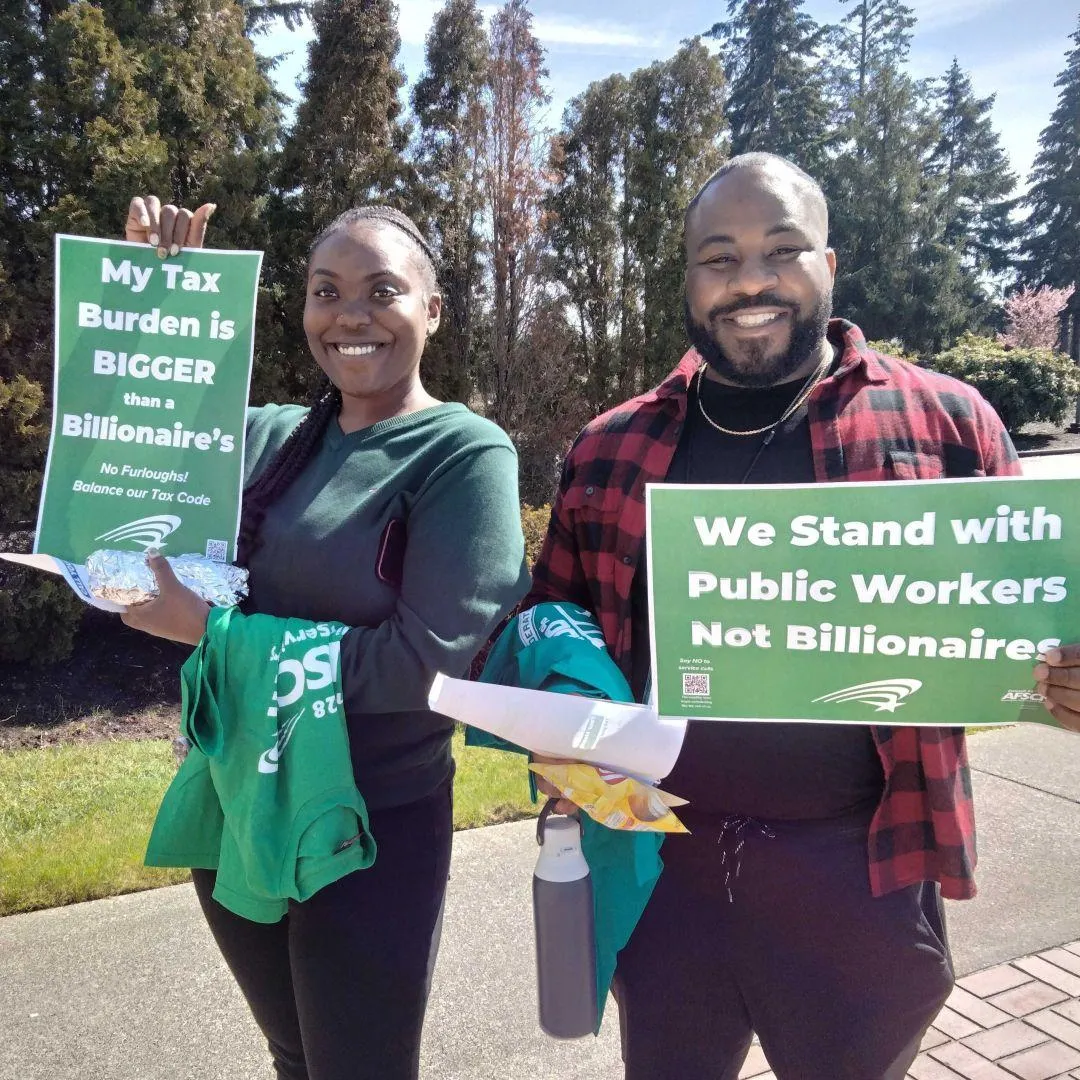
If you live in one of the priority districts identified by our Legislative and Political Action team, you can make a huge impact by making three phone calls: One to your senator and one to each of your state representatives.
- Check if you're in a priority district here and use our script to call your elected officials
- If you don't live in a priority district, you can sign up to phone bank WFSE members in those districts.
What would furloughs and higher healthcare costs mean to you?
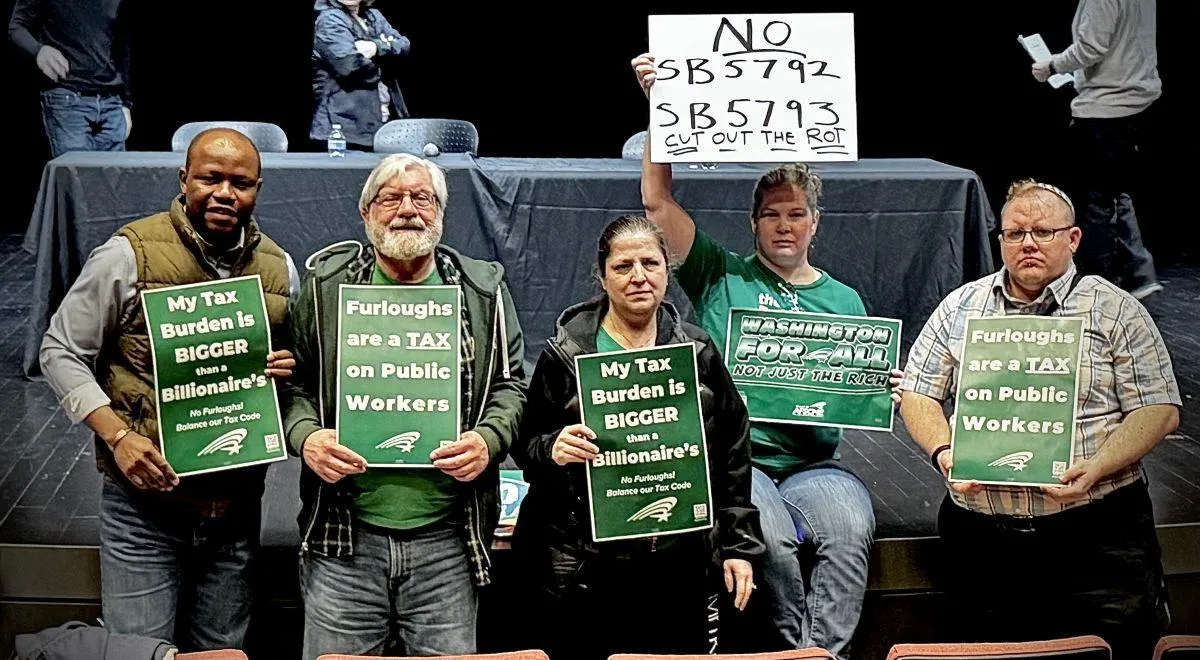
Video action targeting key legislators
Telling our stories is how we'll win. We're not nameless, faceless public workers. We have families. We have people depending on us.
Our state has been in a staffing crisis since at least the Great Recession. We need to tell our elected officials what their proposals will mean for their constituents who depend on us having the staffing levels and resources necessary to get our work done.
- You can create a video and send it to WFSE here.
- You can post your own video and tag priority legislators using this web page. Make sure to tag @wfsec28 as well!
If you haven't contacted your elected official yet -- do it today!
- Send your elected officials an email here pushing back against healthcare cuts and furloughs if you have not yet, or
- Call the Legislative Hotline by texting STAND to 237-263 or calling 888-258-4588
Upcoming In-Person Events
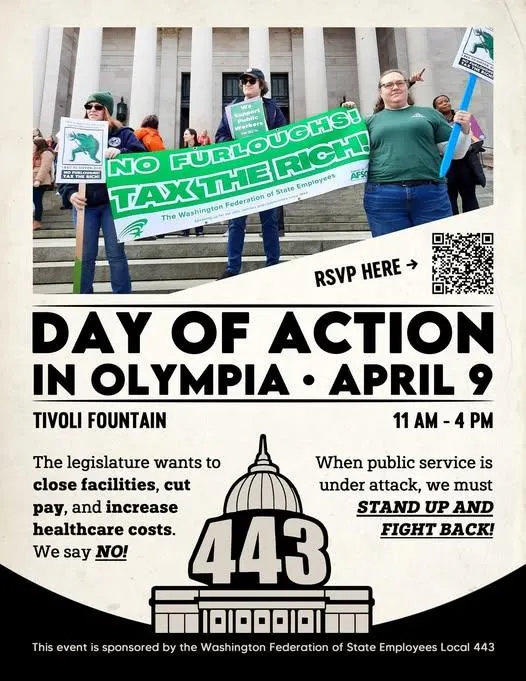
- April 9, 2025: Rally at the Capitol
- April 10: RSVP for Our Save Rainier School Rally in Buckley
- April 10: RSVP for Our Save Yakima Valley School Rally in Selah
Find video interviews, campaign resources and documents on our landing page.
